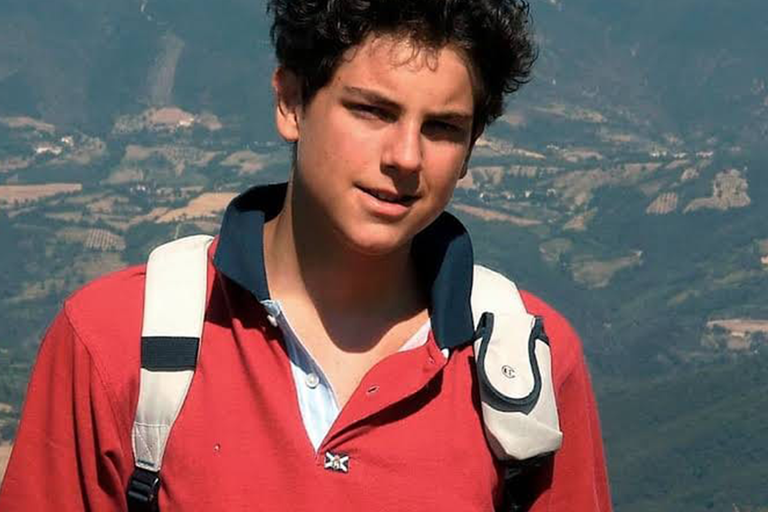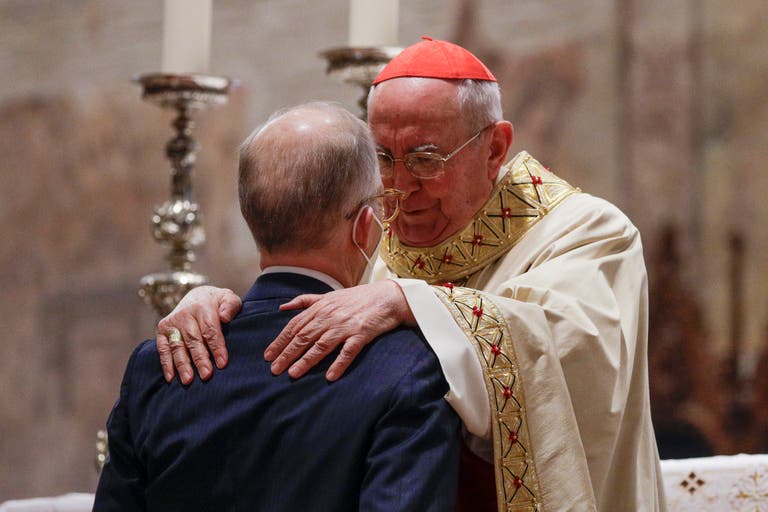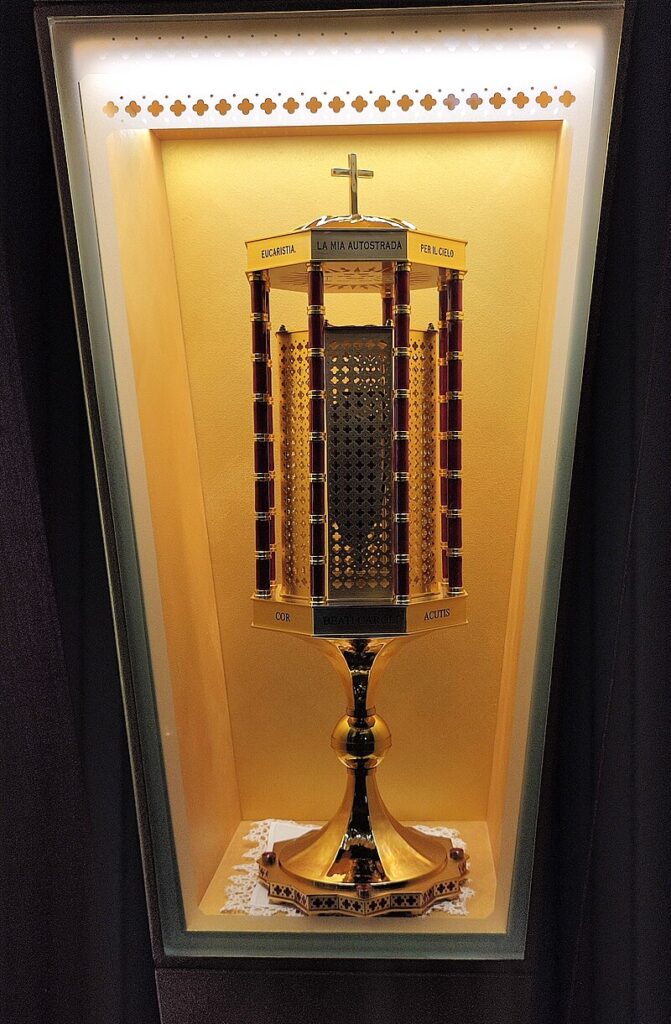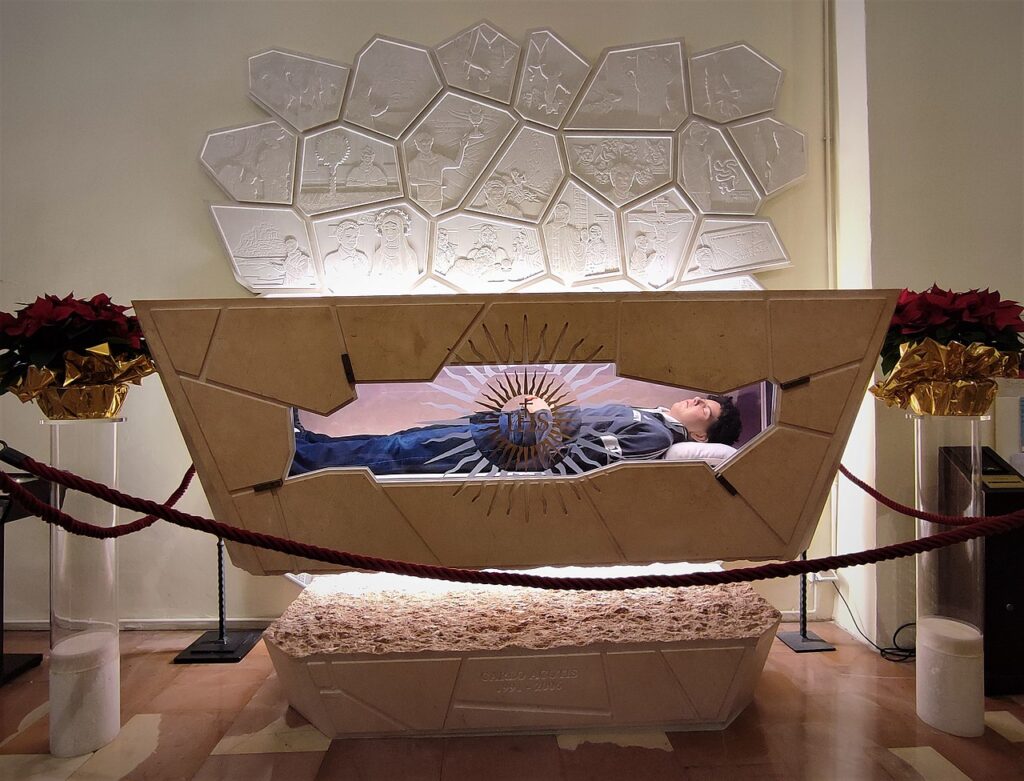
The history of Carlo Acutis is extraordinary. Born on May 3, 1991 to a well-to-do family in London - because both of his Italian parents worked there - he died on October 12, 2006, very quickly from acute myeloid leukemia.
A computer genius, but also a particularly devout boy, even though his family was not - his mother said he had only gone to Mass for his communion, confirmation and marriage - Carlo not only lived a Christian life, he used the networks to create a virtual display of the miracles of the Eucharist in the world. In addition, always thanks to his computer, where he used to play video games, like all boys, elaborated a scheme of the rosary that included the mysteries of the light.
After living for a short period in London, where she had a Polish nanny, Beata, a great admirer of John Paul II He moved with his family to Milan, where he first attended a Catholic school and, shortly before his death, a high school run by the Jesuits. There he first went to a Catholic school and shortly before his death, to a high school run by the Jesuits.
From the time he received his first communion at the age of 7 - before his time because he demanded it - he never missed his daily appointment with Mass. He prayed all the time, went to confession and asked his parents to take him on pilgrimages to places of saints and places of miracles of the Eucharist, which he defined as "a highway to Heaven".
As his family also had a home in Assisi, he used to spend a lot of time in the city of St. Francis, the patron saint of Italy after whom the Argentine Pope was named. Carlo liked Assisi so much that before his death he expressed his desire to be buried there.
"Carlo was not a Franciscan. He was simply an adolescent of our time, in love with Jesus. -and especially of the Eucharist- and most devoted to Mary, especially in the rosary practice. But in Assisi he breathed the charism of St. Francis," wrote the bishop of Assisi, Domenico Sorrentino, in a book entitled Originals, Not Photocopies, a phrase attributed to Carlo, a boy who surely swam against the current. He lived simply, got angry if his mother bought him a second pair of sneakers or brand-name clothes and used to help out at a soup kitchen in Milan.
His cause for beatification began in 2013. In July 2018, Pope Francis declared him venerable, a title granted by the Catholic Church to those who, by the practice of virtues exercised during their lifetime, are considered worthy of veneration by the faithful. Carlo was later credited with a miracle through his intercession, an indispensable step for his beatification. This took place in Brazil, on the seventh anniversary of his death, on October 12, 2013, in Campo Grande, capital of the State of Mato Grosso do Sul.

There, a 6-year-old boy was inexplicably cured of a serious abnormality he had suffered since birth in his pancreas. "Father Marcelo Renório invited the parishioners to pray a novena and placed a piece of Carlo's T-shirt on the little patient, who the next day began to eat and whose pancreas was suddenly healthy. without the surgeons having operated on him," said his mother, Antonia Salzano, in an interview with Corrierre della Sera, in which she assured that she also received miraculous signs from her son-baby.
"Carlo predicted that I would become a mother again, even though I was about to turn 40. And in 2010, when I was already 43, I gave birth to twins, Michele and Francesca," she said, noting that when she suddenly became ill in 2006, Carlo offered his suffering to Pope Benedict XVI and the Church, as well as "to go straight to Paradise without going through purgatory. The future Blessed, in fact, also had a great sense of humor and lived his final stage with great serenity.
"Carlo embodies the sanctity of digital natives." explained in his book Bishop Sorrentino, who clarified that he was not a fan of virtual relationships and that he was also a great catechist. Faithful reflection of this, the domestic servant who worked in his family, Rajesh, thanks to him decided to convert from Hinduism to Catholicism. "It was Carlo, with his enthusiasm, with his explanations, with his films, that gave me the desire to become a Christian and to be baptized," Rajesh testified in the cause of beatification.
"Carlo knew how to speak about Jesus and the sacraments in a way that touched your heart."Bishop Sorrentino, who in his book drew a parallel between this teenager and St. Francis of Assisi, stressed that his body in 2019 was transferred from the city cemetery to the Sanctuary of the Expoliation in the church of St. Mary Major, the ancient cathedral of Assisi. It was there that the young Francis stripped himself, even to the point of nakedness, of all the goods of the world, in order to give himself entirely to God and to others.

Seeing that in recent days some improper versions circulated in the media, Sorrentino a few days ago explained that it is not true that the body of the future Blessed was found incorrupt. "At the time of the exhumation from the cemetery of Assisi, which occurred on January 23, 2019, in view of the transfer to the shrine, it was found in the normal state of transformation proper to the cadaveric condition," he said.
"However, not many years after the burial, the body, still transformed, but with the various parts still in their anatomical connection, was treated with those techniques of conservation and integration that are usually practiced to expose with dignity to the veneration of the faithful the bodies of the blessed and the saints," he said.
It was an operation that was done "with art and love," said Bishop Sorrentino, who mentioned the "particularly successful reconstruction of the face through a silicone mask. The prelate also detailed that thanks to a special treatment it was possible to recover the "precious" relic of the heart, which will be used this Saturday, the day of the beatification.
In Christus vivit (Christ Lives), the apostolic exhortation he wrote to young people after the synod dedicated to them in March last year, Pope Francis made special mention of Carlo Acutis. "It is true that the digital world can put you at risk of self-absorption, isolation or empty pleasure. But don't forget that there are young people who are also creative and sometimes brilliant in these areas. This is what the venerable young Carlo Acutis used to do.", he wrote in paragraph 104.

"He knew very well that these mechanisms of communication, advertising and social networks can be used to turn us into numb beings, dependent on consumption and the novelties we can buy, obsessed with free time, locked in negativity. But he was able to use the new communication techniques to transmit the Gospel, to communicate values and beauty.", he continued.
Acutis passed away on October 12, 2006 (the feast day of the Virgin of Pilar in Spain and Latin America) and reached the altars with his beatification on October 10, 2020.
Elisabetta PiquéShe is the Italy and Vatican correspondent for La Nación. She has a degree in Political Science with a specialization in International Relations.
Originally published in La Nación.